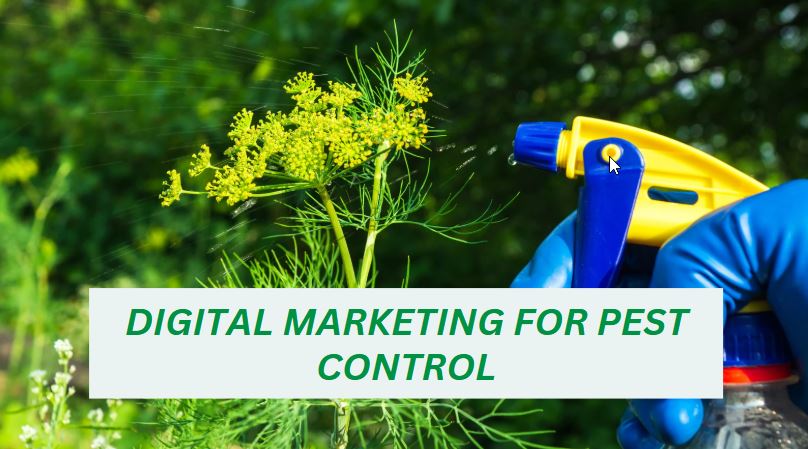Small business owners, in this digital age, are constantly looking for ways to reach their target audiences. An affiliate program is one of the best ones. As a business, all you need to do is create an affiliate program and get signed up with an affiliate network. In this blog, we’ll talk about how affiliate marketing can help you boost your conversions. Let’s dive in.
Affiliate Marketing for Small Businesses (Ultimate Guide)
Understanding Affiliate Marketing
An affiliate program allows brands and affiliates to work and grow together. Your role as an affiliate marketer is to promote your brand’s products and help them with marketing and sales. Brands pay an affiliate on the basis of results, which is why it’s called performance-based marketing.
How Affiliate Marketing Works?
- A brand creates its affiliate program and gets registered on a platform like Impact
- Marketers apply to be an affiliate
- The brand approves them and provides them with personalized affiliate links
- Affiliates generate a pre-decided commission on every conversion through that link
The three key players involved in an affiliate program are:
- Affiliates
- Merchants (Brands)
- Customers
- Networks (Optional)
Benefits of Affiliate Marketing for Small Businesses

Cost-Effective Marketing Strategy
A lot of people will promote your brand even if you promise them a small incentive. For instance, you can pay as low as 2% for every sale someone brings to you. This makes the marketing strategy super cost-effective.
No Upfront Costs
The strategy doesn’t involve you paying anything upfront. You’ll only have to pay affiliates after they’ve generated some form of conversion.
Performance-Based Payment Model
Affiliates get paid on the basis of their performance. This motivates marketers to promote your brand and generate maximum results. Because it’s a win-win.
You May Also Like: How to Use ChatGPT for Social Media
Getting Started with Affiliate Marketing
Starting an affiliate program as a business is easier than you may think.
Choosing the Right Affiliate Marketing Platform
The first step is to pick an affiliate marketing platform or network. There are many reliable ones out there, including:
- CJ Affiliate
- Impact
- ShareASale
You can get your business registered on any of those with confidence.
Setting Up an Affiliate Program
One of the most important steps while setting up your affiliate program is deciding on a commission structure. It can be based on:
- A percentage
- A fixed amount per sale/conversion
Of course, you want to strike a balance between maintaining profitability and incentivizing affiliates. Next, you want to make it easier for affiliates to promote your products by creating promotional materials. These can be banners, email swipe files, or ad copy. Don’t forget to set up effective tracking and analyze affiliate performances. Moreover, create an attractive affiliate offer by offering additional incentives like:
- Access to pre-launch products
- Promo codes
- Exclusive discounts
Lastly, it’s crucial to outline your affiliate program’s terms, including:
- Commission structures
- Payment schedules
- And other compliance matters
Finding and Recruiting Affiliates

Once you have an irresistible affiliate program, it’s time to recruit some good marketers as affiliates. The most important thing is to ensure compatibility between an affiliate’s audience and your offer. Look for people with an audience related to your niche or brand.
Next, reach out to them explaining how the partnership can be beneficial for them. Tell them how your products can be valuable to their audience. Consistent communication with your affiliates is essential for long-term success.
Feel them included and a part of your business. Share with them product updates, upcoming promotions, and marketing strategies they can use to promote your products. In addition, provide them with all the necessary promotional resources, including:
- Promotional images
- Ad copy
- Educational content about your products
The more they know about your product, the better they’re able to tell others about it. Moreover, you should encourage and assist affiliates in producing high-quality content for their audience. This helps both parties generate massive results for each other.
Benefits for Affiliate Marketers
The good thing about affiliate marketing is that it offers irresistible benefits to marketers and content creators. This means you don’t have to do a lot to work with an established influencer and generate more sales. Here are some prominent benefits for affiliates:
No Product Creation and Handling
Being an affiliate is attractive because the business model doesn’t require product creation and management. As marketers, they can start making money by promoting products owned and managed by other people.
Passive Income
If your product is subscription-based, affiliates have an opportunity to earn recurring commissions. This makes affiliate marketing a truly passive income source. Also, depending on what type of content they’re using for promotion, it can bring consistent traffic.
No Post-Sale Service
Affiliate marketers aren’t responsible for after-sale services. This means the job is complete as soon as someone purchases the product through their affiliate link.
Avoiding Common Mistakes
An affiliate program can prove to be a game-changer, but you do need to steer clear of some common mistakes.
Overlooking Affiliate Screening and Monitoring
Neglecting the screening process can lead to you working with marketers who don’t have an audience related to your brand and niche. In addition, not monitoring your affiliates can prevent you from maintaining brand consistency.
Ignoring the Importance of Training Affiliates
Educating affiliates about your brand is crucial for long-term success, but it’s not enough. You also need to train affiliates on how to effectively promote your products.
This includes:
- How to create a converting landing page
- How to create a content strategy
- How to build an email list
- And more
You can add these educational resources to your affiliate resources.
Related: Digital PR Vs SEO
FAQs
Does affiliate marketing work for small businesses?
Yes, having a dedicated affiliate program helps you sell more of your products as a small business owner.
How do I start small affiliate marketing?
To start affiliate marketing, you just have to identify a traffic source, pick a niche, and sign up for affiliate programs.
How do I set up affiliate links for my small business?
To set up affiliate links for your small business, you can use an affiliate marketing platform like Shopify.
Conclusion: Affiliate Marketing for Small Businesses
In this competitive digital marketing landscape, affiliate marketing offers a low-cost, simple way to promote your small business. It allows you to grow your brand with no upfront costs and build long-term relationships with top marketers. However, make sure to:
- Implement an effective screening process
- Train new affiliates
- Provide enough promotional materials
You May Also Like: How to Use ChatGPT for Social Media Marketing




